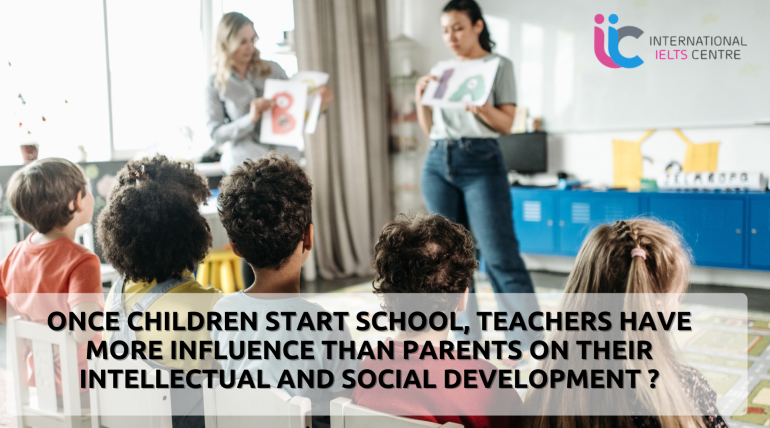
December 15, 2023
It is believed that with the start of school, children embark on a crucial journey of intellectual and social development. While parents undoubtedly have a lasting impact on children, I believe that teachers hold a substantial influence on a child’s intellectual and social development during their formative years.
The most compelling justification for my viewpoint is that teachers possess the expertise, knowledge, and skills required to impart valuable educational content. They play a vital role in teaching a child intellectual methods, and assessment strategies. Moreover, teachers act as a facilitators by encouraging critical thinking, logical reasoning and problem solving skills. Their guidance cultivates curiosity and fosters a love for learning in children. By creating group projects, classroom discussions and shared learning experiences, teachers provide and build social skills such as communication, empathy and negotiation. Teachers also help develop emotional intelligence by teaching conflict resolution and promoting positive classroom culture. This social interaction contributes to the overall well-being and social progress of children.
Further reinforcing my viewpoint, teachers set behavioural expectations, teach empathy, and promote healthy communication, ensuring that each child feels valued and respected. By creating a safe space, teachers encourage students to express themselves freely, allowing for intellectual growth and social interaction. While parents undoubtedly play a crucial role, given the limited time they spend with their children compared to teachers, it is the latter who exert a more significant influence during school hours.
Agglomerating all the facts, I would like to ingeminate that teachers have more impact on the lives of students more than their parents; thus, ensuring they are socially and intellectually well-developed.
